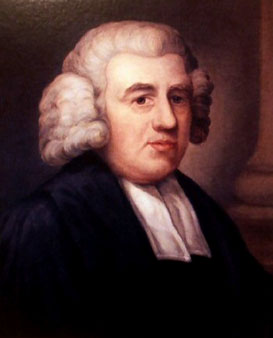When I was asked to participate in this column* designed for older Christians to share insights and encouragements to younger believers, I had no doubt what issue to address — the Gospel-driven life.
The Gospel of saving grace in Jesus is the foundation, the formation, and the primary motivation for the Christian life.
The Gospel message brings you to Christ as the sure foundation for eternal life. The Gospel message provides direction for the formation of your new life. The Gospel message provides the primary motivation for a maturing life. The importance of living a Gospel-driven life is why Paul reminded the Corinthian church that when he was “with them” he was determined to maintain their focus upon the Gospel, by preaching “Christ and Him crucified.” Adding emphasis, he declared, “I did not come to baptize, but to preach the Gospel” (see 1 Cor. 1:17). He was not demeaning baptism, but rather underscoring that the Gospel is essential to evangelism and disciple-making.
Early in my Christian life, I thought the Gospel was the message to win people to Christ, then, in disciple-making, one moved on to “deeper things.” What a fallacy! You never move beyond the Gospel. You go deeper and higher with the Gospel, but never beyond the Gospel. The Gospel is what defines how to be a Christian man, woman, spouse, parent, and citizen. The Gospel brings the reign of Christ’s kingdom to our hearts and throughout the world. The Gospel blessings give joy to the Christian life and the ability to rejoice even in suffering. The Gospel imperatives direct our new desire to lovingly obey our Lord. The Gospel provides the foundation, the formation, and the motivation as it ignites our loving obedience to Christ as we discover the transforming truth that “He first loved us” (1 John 4:19).
A steady delivery of brochures to my office offer conferences that will help the church “make the Gospel relevant.” Betsy Childs, a daughter of our church and writer for Ravi Zacharias, in commenting on this phenomenon, writes: “Why would we think the Gospel is irrelevant?” She is right. Nothing is more relevant than the Gospel. To be sure, we must understand the issues of our age and connect meaningfully with people for effective evangelism and discipleship, but nothing is more relevant than the Gospel message, which announces: When there was no way for man to be right with God, He made a way, through Christ, His Son, who is “the way, and the truth and the life. No one comes to the Father except through [him]” (John 14:6). The Gospel message reveals that God’s love has met God’s holiness at the cross. Therefore, our salvation is by the power of God and the unfailing righteousness of God.
Most religions have a commonality. They tell you what you must do to gain salvation. In contrast, the Christian Gospel declares what we do is not the answer, but the problem. I am convinced the greatest words in the Bible are: “But God.” “Note then the kindness and the severity of God: severity toward those who have fallen, but God’s kindness to you…” (Rom. 11:22).
In Romans 1:15 Paul declares that a key to his desire to come to Rome is because he is “eager to preach the gospel to you also who are in Rome.” The “you” are identified in verse 7 as “the loved by God and called to be saints.” In other words, Christians. Paul was eager to preach the Gospel not only to the lost but also to the Christians. Paul obviously believes that the Gospel is essential to both evangelism and discipleship as it provides the foundation, the formation, and the motivation for the Christian life.
When I was sixteen, my father bought me a car at an auction for $75. It was a pink ’57 Ford, which Dad insisted was “coral.” I couldn’t drive a pink car to school! I then heard words that in a not-to-distant future my children would hear, “Son, a poor ride is better than a proud walk.” It was said so convincingly I knew it was probably in the Bible. Then my Dad opened the hood, and to my surprise, underneath was a 390 engine with two four-barrel carburetors. The car had been a South Carolina State Interceptor (a highway patrol car). Nothing had more power under the hood. Space and conviction prevents me from detailing the surprises that Corvettes and Roadsters would get after they looked laughingly at my pink ’57 Ford while sitting side by side at stoplights. It didn’t look like much, but there was power under the hood.
Young Christian, the world despises the Gospel in its simplicity and disdains the vessels entrusted to carry and proclaim it. But there is power under the hood. Live the Gospel, believe and preach the whole Gospel — the Gospel blessings that declare who you are in Christ, the Gospel imperatives that call you to your new life for Christ. This Gospel transforms the hearts, minds, and wills of sinners. Thankfully, it continues to transform mine. Preach it to yourself, to each other, and to the lost, and know the joys of the Gospel-driven life.
---------------------------------------------------
Dr. Harry L. Reeder III is senior minister of Briarwood Presbyterian Church in Birmingham, Alabama.
*In order to promote the unity and growth of the body of Christ, Generation to Generation endeavours to provide the wisdom of elders to younger readers and convey what young Christians need to hear as they mature in the Christian faith.
---------------------------------------------------
From Ligonier Ministries and R.C. Sproul. © Tabletalk magazine.
Website: www.ligonier.org/tabletalk. Email: tabletalk@ligonier.org.
Toll free: 1-800-435-4343.
---------------------------------------------------
I’m also hoping to read this book soon by Michael Horton:






 I would like to share a letter in this blog post, not from me, but from our Apostolic Fathers; commonly known as the Martyrdom of Polycarp. Although the author of this letter is unknown, it was recorded by Eusebius, who claims to have received it through a letter addressed to the Church of Philemelium by the Church of Smyrna. The work details Polycarp's death at the age of 86, martyred under the hand of the Roman empire, possibly under the reign of Marcus Aurelius (121-180 C.E.).
I would like to share a letter in this blog post, not from me, but from our Apostolic Fathers; commonly known as the Martyrdom of Polycarp. Although the author of this letter is unknown, it was recorded by Eusebius, who claims to have received it through a letter addressed to the Church of Philemelium by the Church of Smyrna. The work details Polycarp's death at the age of 86, martyred under the hand of the Roman empire, possibly under the reign of Marcus Aurelius (121-180 C.E.).

 “[I] never try to frighten people into the kingdom of God. I do not even call people forward at the end of a service. I know that when the spirit of God has dealt with them, has changed them, and has given them new minds and hearts, they will come and tell me or tell somebody else. I do not want an immediate decision because I know that even I can produce decisions. A man’s eloquence or the use of lights or music can produce decisions. But I do not do that. I simply put the truth before people, and it is the Spirit of the living God alone who can apply that truth, and he does.”
“[I] never try to frighten people into the kingdom of God. I do not even call people forward at the end of a service. I know that when the spirit of God has dealt with them, has changed them, and has given them new minds and hearts, they will come and tell me or tell somebody else. I do not want an immediate decision because I know that even I can produce decisions. A man’s eloquence or the use of lights or music can produce decisions. But I do not do that. I simply put the truth before people, and it is the Spirit of the living God alone who can apply that truth, and he does.”

